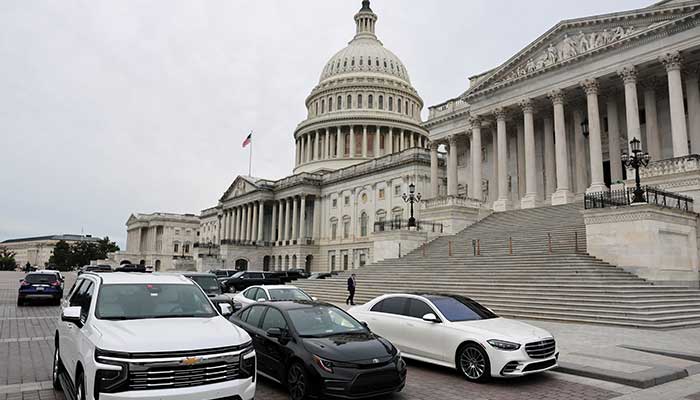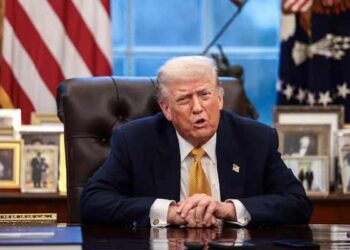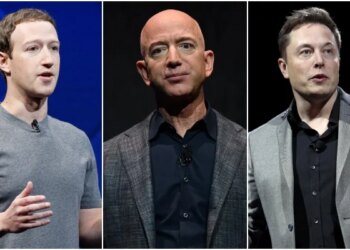Select Language:
- Shutdown halts critical economic data, impacts federal workers.
- Senate rejects spending bill, deepening partisan divide.
- Experts warn the shutdown could last longer than previous closures.
WASHINGTON: The U.S. government has largely shut down as of Wednesday after political stalemates prevented Congress and the White House from agreeing on funding, potentially dragging out a prolonged and tough standoff that might result in thousands of federal job losses.
There’s no clear way forward, with agencies warning that this marks the 15th government shutdown since 1981. It will pause the release of a key September employment report, slow down air travel, halt scientific research, delay paychecks for military personnel, and cause nearly 750,000 federal employees to be furloughed at an estimated daily cost of $400 million.
President Trump, who is pushing to overhaul the federal government and expects to furlough around 300,000 workers by December, warned Democratic leaders that a shutdown could trigger irreversible actions, including further cuts to jobs and programs.
The shutdown started hours after the Senate rejected a temporary spending bill that would have funded government operations through November 21. Democrats opposed the bill because it lacked extensions for health benefits that are set to expire at year’s end, with Republicans insisting these issues be addressed separately.
The dispute involves a $1.7 trillion funding package covering roughly a quarter of the federal budget, with the remainder primarily allocated for health and retirement programs, and debt servicing on the growing $37.5 trillion national debt.
Independent analysts believe the shutdown could outlast previous ones, especially with Trump and administration officials threatening to reduce funding for government programs and payroll in retaliation against Democrats.
Trump’s budget chief, Russell Vought, has indicated support for reduced bipartisan appropriations and warned of permanent layoffs if the shutdown continues.
A Nonpartisan Proposal Without Policy Riders
The longest shutdown in U.S. history lasted 35 days during late 2018 and early 2019, during Trump’s first term, in a dispute over border security funding.
Senate Democratic Leader Chuck Schumer commented, “They only want to intimidate us, but they won’t succeed,” following a White House meeting with Trump and congressional leaders, which ended with wide gaps between parties.
Senate Majority Leader John Thune argued the failed short-term funding measure was a “nonpartisan” effort without policy riders Democrats have previously supported. “The issue is President Trump’s presence in the White House—that’s what changed. This is politics, and there’s no real reason for a shutdown,” he said.
While Republicans hold majorities in both chambers, passing a funding bill requires at least 60 out of 100 senators’ support, meaning Democrats’ votes are essential.
Healthcare Funding and Electoral Stakes
Democrats face pressure from supporters eager for a victory before the 2026 midterms, which will determine control of Congress for the final two years of Trump’s term.
Healthcare remains a crucial issue, with Democrats seeking to extend subsidies and secure protections that prevent undoing those changes if passed into law.
Trump’s refusal to release funds approved by Congress has caused Democrats to question whether they should participate in voting on future spending bills.
University of Chicago professor Robert Pape notes that intense political polarization, following events like conservative activist Charlie Kirk’s assassination and the influence of far-right factions, complicates negotiations over reopening the government.
“Political rules are shifting rapidly, and it’s uncertain where things will end,” Pape said. “Both sides have to backtrack from support to millions of passionate constituents, which will be very challenging.”
Before the shutdown, Trump shared a manipulated deepfake video attacking Democrats, including a cartoonish sombrero and mustache over House Democrat Hakeem Jeffries’ face. Schumer called it “childish and petty,” criticizing its lack of seriousness and its harmful impact.







